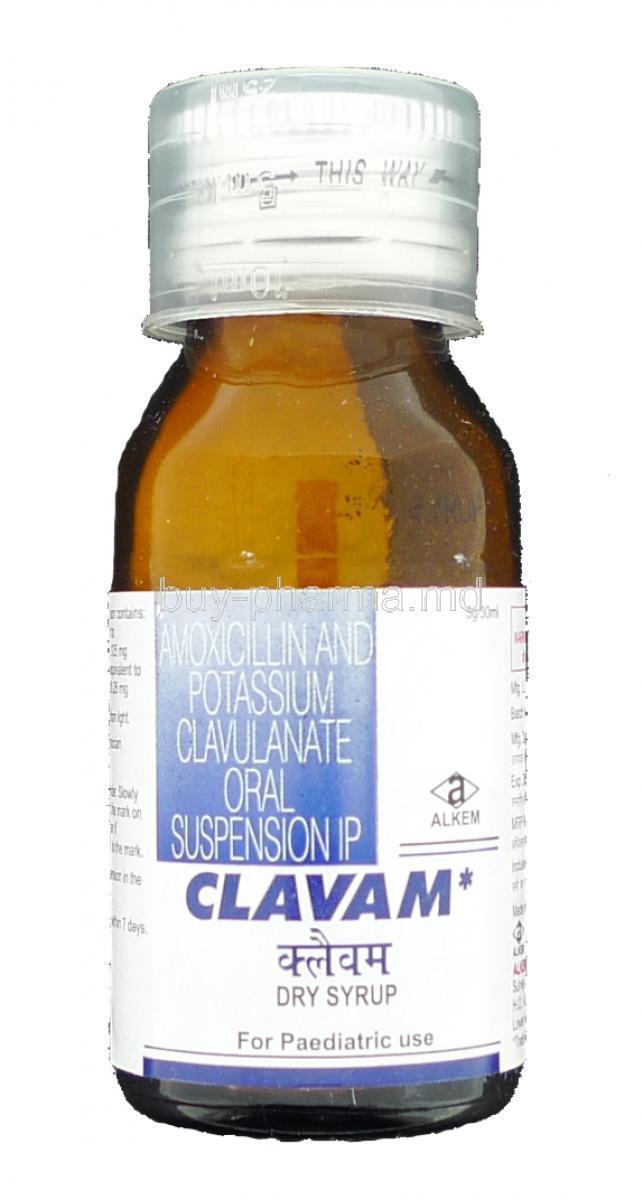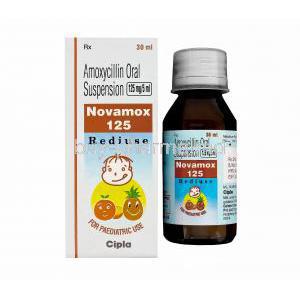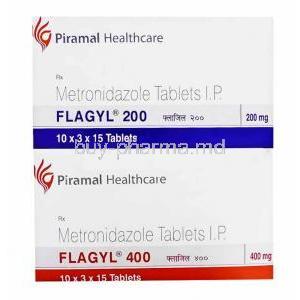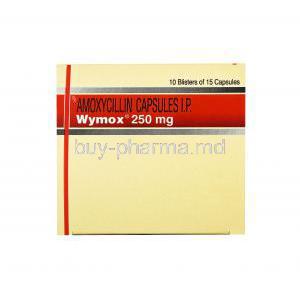Clavam Dry Syrup
- 1. Introduction
- 2. Composition of Clavam Dry Syrup
- 3. Uses of Clavam Dry Syrup
- 4. How Clavam Dry Syrup Works
- 5. Dosage and Administration
- 6. Side Effects of Clavam Dry Syrup
- 7. Important Warnings and Precautions
- 8. Contraindications of Clavam Dry Syrup
- 9. Interactions with Other Drugs and Substances
- 10. Storage Instructions for Clavam Dry Syrup
- 11. Administration to Special Populations
- 12. Overdosage of Clavam Dry Syrup
- 13. Handling Precautions
1. Introduction
Overview of Clavam Dry Syrup
Clavam Dry Syrup is a used blend specially made for children's health needs. It is a type of beta-lactam antibiotic that contains both amoxicillin and clavulanic acid renowned for its effectiveness against a wide range of bacterial infections
Purpose and Therapeutic Benefits
This syrup is designed to treat infections caused by bacteria vulnerable to its effects. It helps eliminate microorganisms and reduces infection symptoms while also preventing any complications linked to untreated bacterial illnesses.
Key Features and Advantages
- Enhanced stability for pediatric administration.
- A combination of amoxicillin and clavulanic acid ensures superior efficacy.
- Available in convenient, easy-to-administer liquid form.
2. Composition of Clavam Dry Syrup
Active Ingredients and Their Roles
The primary ingredients are:
- Amoxicillin: A broad-spectrum penicillin that disrupts bacterial cell wall synthesis.
- Clavulanic Acid: A beta-lactamase inhibitor that enhances the antibiotic spectrum of amoxicillin.


Supporting Components and Formulation Details
The mixture contains additives, like taste enhancers, and substances that maintain consistency and suspend the ingredients to improve taste and extend the product's shelf life, successfully creating an effect profile.
Variants and Strengths Available
Clavam Dry Syrup comes in potencies designed for age groups and levels of infection seriousness. Like 125 mg / 2 teaspoons and 250 mg / 2 teaspoons options.
3. Uses of Clavam Dry Syrup
Approved Therapeutic Uses
- Respiratory tract infections, including bronchitis and pneumonia.
- Skin and soft tissue infections such as cellulitis.
Amoxicillin for uti
Doctors might recommend taking 500 mg of amoxicillin three times a day for treating UTIs (Urinary Tract Infections). Amoxicillin can lead to side effects such as yeast infections and feelings of nausea and vomiting. People with UTIs are categorized into having either uncomplicated or complicated urinary tract infections.

Amoxicillin for dogs
Amoxicillin is frequently recommended by veterinarians as an antibiotic for treating bacterial infections in dogs. Most dogs tolerate amoxicillin well; however there are side effects such, as diarrhea, nausea, stomach pain, skin rash or allergic reactions that may occur.

Amoxicillin for sinus infection
The usual dosage of amoxicillin for a sinus infection is 500 mg every 8 hours or 875 mg every 12 hours for 5 to 10 days, which might change depending on the seriousness of your infection; childrens dosage will be based on their body weight. You can take amoxicillin with or without food.
Off-label Uses
- Dental infections: Often prescribed for acute odontogenic infections.
- ENT infections: May help in managing otitis media and sinusitis.
4. How Clavam Dry Syrup Works
Mechanism of Action of Key Ingredients
The way amoxicillin works is by disrupting the creation of cell walls, which leads to the destruction of the cells themselves, while clavulanic acid protects amoxicillin from being broken down by enzymes, thus making its ability to fight against microbes stronger.

Synergistic Effects of Combination Therapy
The combination of amoxicillin and clavulanic acid is effective against a range of bacteria that includes both gram gram-negative strains to combat resistant infections efficiently.
Pharmacokinetics and Absorption Profile
The mixture shows bioavailability and quick absorption to ensure fast therapeutic effects.
5. Dosage and Administration
Standard Dosing Guidelines for Children and Adults
The amount of medication needed for children varies based on the child's weight and usually falls within the range of 20 to 40 mg per kilogram per day. Adults might need to take 500 to 875 mg twice a day based their conditions seriousness.
Adjustments Based on Severity of Infection
In serious infections, treatment may require increased doses or longer durations, under the guidance of a healthcare professional.
Instructions for Reconstitution and Accurate Dosing
Make sure to mix the syrup with boiled and then cooled water before using it; give it a shake and use it within the time frame suggested for results.
6. Side Effects of Clavam Dry Syrup
Common Side Effects
Amoxicillin rash
An allergic reaction to amoxicillin can vary in intensity from mild to severe. It is influenced by the individual's sensitivity to the medication. The rash may appear as red or purple and can extend throughout the body. It might also manifest as hives, raised white bumps that form on the skin

Rare but Serious Adverse Reactions
- Stevens-Johnson Syndrome
- Cholestatic hepatitis
- Anaphylactic reactions
7. Important Warnings and Precautions
Identifying Allergic Predispositions
Reviewing a background is important to check for any allergic reactions to beta-lactam antibiotics.
Monitoring Liver and Kidney Function During Prolonged Use
It is important to perform evaluations of liver and kidney functions to identify any signs of harm.
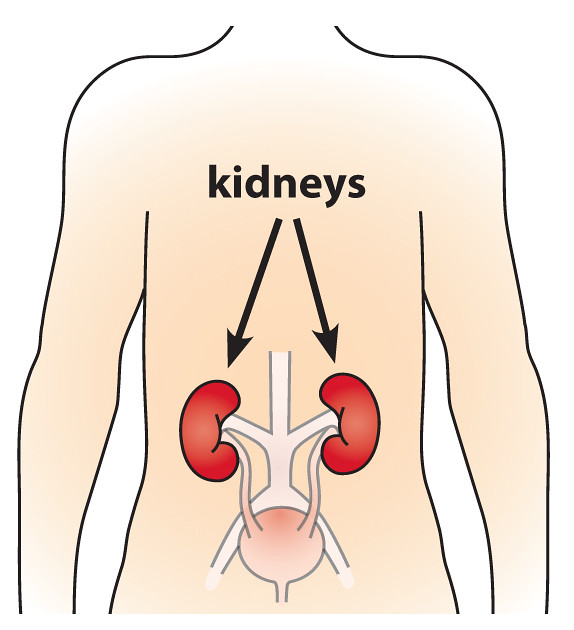
Avoidance in Specific Medical Conditions
Not advisable for those with a background of liver problems or infectious mononucleosis.
8. Contraindications of Clavam Dry Syrup
Absolute Contraindications
- Known hypersensitivity to penicillins or clavulanic acid.
- Previous history of cholestatic jaundice with similar drugs.
Relative Contraindications Requiring Caution
- Patients with moderate liver or kidney impairment.
- Concurrent use with specific anticoagulants.
9. Interactions with Other Drugs and Substances
Known Drug-Drug Interactions
Clavam Dry Syrup may interact with a variety of medications, potentially altering its efficacy or increasing the risk of adverse effects. Common interactions include:
- Anticoagulants: May enhance the anticoagulant effect of warfarin, necessitating close monitoring of prothrombin time.
- Allopurinol: Increases the likelihood of amoxicillin-induced skin rashes.
- Oral contraceptives: Slightly reduced efficacy of hormonal contraceptives has been reported in some cases.
Interaction with Dietary Components or Supplements
Dietary components can influence the absorption and effectiveness of Clavam Dry Syrup. Key considerations include:
- High-fat meals may delay the absorption but do not significantly reduce overall bioavailability.
- Calcium and iron supplements can interfere with the drug's absorption, reducing its therapeutic impact.
Amoxicillin / clavulanic acid interactions with alcohol
It's best to steer off alcohol when taking Clavam Dry Syrup as it could heighten the chances of experiencing stomach troubles, feeling dizzy, and weakening the body's ability to fight off infections.
10. Storage Instructions for Clavam Dry Syrup
Ideal Storage Conditions to Maintain Potency
Ensure that you store Unreconstituted Clavam Dry Syrup in an dry place away, from sunlight and moisture for optimal preservation of its effectiveness; an ideal temperature range of 20 to 25 degrees Celsius is recommended.
Safe Handling of Reconstituted Syrup
After you've mixed it up again, the syrup is ready to go make sure to keep it in the fridge at a temperature of 2 to 4 degrees Celsius. Don't forget to seal it to keep it fresh and give it a shake before using it each time.
Expiry Considerations After Reconstitution
After preparing Clavam Dry Syrup, it stays potent for a week if kept in the right conditions. Make sure to dispose of any leftover medicine beyond this time to prevent giving expired medication.
11. Administration to Special Populations
Elderly
Dosage Adjustments and Monitoring
For patients, the dosage might need to be adjusted because their kidneys or liver may not function well as before. It's important to keep an eye on their kidney health to avoid any issues, with medication toxicity.
Specific Risks in the Geriatric Population
Elderly individuals are at risk of experiencing side effects like diarrhea and dizziness when taking medication; therefore, it is crucial for them to utilize the medication with medical oversight to reduce potential dangers.
Pregnant Women and Nursing Mothers
Safety Profile During Pregnancy
Clavam Dry Syrup falls into FDA Pregnancy Category B, which suggests that there is no risk based on animal studies; nevertheless, its usage should be carefully weighed against any risks to the fetus.

Excretion in Breast Milk and Precautions
The components present are released in quantities through breast milk—a word of caution is recommended if the baby displays symptoms, like diarrhea or a rash.
Children
Pediatric Dosage Guidelines
The amount of medication for kids varies based on their weight; 20 to 40 mg per kilogram per day, split into two or three doses a day, is recommended for dosing; using the syringe or cup provided is important for precise measurement.
Special Precautions for Infants and Toddlers
Monitoring infants and young children closely for symptoms of stomach issues or allergies is vital, especially being careful with newborns due to their developing kidney function.
12. Overdosage of Clavam Dry Syrup
Symptoms of Overdose and Toxicity
Signs of taking medication can result in intense stomach discomfort or seizures and may show signs of kidney problems as well; it's crucial to seek immediate medical help in such situations.
Immediate Steps to Take in Case of Overdose
If you think there has been an overdose situation happening with someone you know or yourself, you can take steps, like washing out the stomach and giving activated charcoal to help out. It's also an idea to provide treatment, for any symptoms that show up and make sure to keep hydrated.
Long-Term Effects of Improper Dosing
Overusing medications can cause issues, like harm to the liver and kidneys over time; using them for long might also make antibiotics less effective, in the future.
13. Handling Precautions
Guidelines for Caregivers Administering Clavam Dry Syrup
- Ensure proper reconstitution by adding the correct volume of water and mixing thoroughly.
- Use the calibrated dosing device provided to ensure accuracy.
- Administer the medication at evenly spaced intervals for optimal efficacy.
Avoiding Contamination During Reconstitution
Make sure to wash your hands and sterilize the utensils when preparing the medication and be careful not to expose it to surroundings.
Proper Disposal of Expired or Unused Medication
Make sure to dispose of any syrup that has expired or is no longer needed following the disposal guidelines set by your pharmacy authority and avoid flushing it down the drain or pouring it into drainage systems.
Clavam Dry Syrup FAQ
- What is Clavam used for?
- Is clavam safe for kidney?
- Is Clavam good for throat infection?
- Is Amox Clav a strong antibiotic?
- Who should not take Clavam 625?
- Will amoxicillin help pneumonia?
- Why amoxicillin with food?
- Why amoxicillin cause diarrhea?
- When amoxicillin doesn't work?
- What amoxicillin and clavulanate potassium used for?
- How amoxicillin works on bacteria?
- Can amoxicillin cause constipation?
- Can amoxicillin cause diarrhea?
- Can amoxicillin treat uti?
- Are amoxicillin and azithromycin the same?
- Are amoxicillin and cephalexin the same?
- Are amoxicillin and penicillin the same?
- What is clavulanic acid mechanism of action?
- What is clavulanic acid used for?
- How does clavulanic acid protect amoxicillin?
- How does clavulanic acid inhibit beta lactamase?
- Can you drink on clavulanic acid?
- Can amoxicillin and clavulanic acid treat uti?
- Can amoxicillin clavulanic acid treat chlamydia?
What is Clavam used for?
It is commonly used to treat infections in parts of the body such as the ear, nose, and throat, as well as skin, bones, and joints, and also in the urinary and respiratory tracts.
Is clavam safe for kidney?
Patients with kidney disease should be cautious when using this product.
Is Clavam good for throat infection?
Clavam is used to treat throat infections caused by types of bacteria that can lead to conditions such as tonsillitis and sinusitis, as well as infections in the respiratory tract and oral cavity.
Is Amox Clav a strong antibiotic?
When taken alone, clavulanate potassium does not have effects; however, when combined with amoxicillin, it broadens its effectiveness to combat infections caused by bacteria that produce beta-lactamase enzymes. Amoxicillin/clavulanate is classified under the category of medicines called penicillins.
Who should not take Clavam 625?
Taking Clavam 625 Tablet can be risky for patients who are allergic to penicillins or any components of the medication.
Will amoxicillin help pneumonia?
You'll probably receive an antibiotic known as amoxicillin, which falls under the category of penicillin.
Why amoxicillin with food?
You can avoid stomach upset by taking Amoxicillin with food.
Why amoxicillin cause diarrhea?
Taking amoxicillin can lead to diarrhea as it is an antibiotic that upsets the balance of bacteria in your gut.
When amoxicillin doesn't work?
Possible reasons for otitis media (AOM) not responding to amoxicillin may involve infection from bacteria, amoxicillin, or insufficient dosing or absorption.
What amoxicillin and clavulanate potassium used for?
Amoxicillin and clavulanate combination is prescribed for treating infections in areas of the body such as the ears, lungs, sinuses, skin, and urinary tract.
How amoxicillin works on bacteria?
Amoxicillin functions by blocking the production of mucopeptides in the cell wall.
Can amoxicillin cause constipation?
Amoxicillin does not mention constipation as one of its side effects.
Can amoxicillin cause diarrhea?
Amoxicillin might lead to diarrhea and, in some situations, it could be quite severe.
Can amoxicillin treat uti?
No
Are amoxicillin and azithromycin the same?
Some kinds of antibiotics, such as amoxicillin and azithromycin, serve purposes in fighting infections.
Are amoxicillin and cephalexin the same?
The medications fall into categories, with Cephalexin being a cephalosporin antibiotic and Amoxicillin belonging to the penicillin-type antibiotics group.
Are amoxicillin and penicillin the same?
Amoxicillin and penicillin differ mainly in their effectiveness, against types of bacteria as amoxicillin is capable of targeting a range of bacterial strains compared to penicillin. The two medications, amoxicillin and penicillin are classified under the category of antibiotics known as penicillins.
What is clavulanic acid mechanism of action?
Clavulanic acid works by attaching itself to a serine residue in the site of the β lactamase enzyme, acting as a suicide inhibitor.
What is clavulanic acid used for?
Middle ear and sinus infections
How does clavulanic acid protect amoxicillin?
It functions by stopping bacteria from breaking down amoxicillin.
How does clavulanic acid inhibit beta lactamase?
Clavulanic acid stops beta-lactamase activity by attaching itself to a serine component within the enzyme's active region.
Can you drink on clavulanic acid?
There is no documented information about any interactions between alcohol and amoxicillin clavulanate medication.
Can amoxicillin and clavulanic acid treat uti?
Amoxicillin and clavulanic acid are effective in treating tract infections (UTIs).
Can amoxicillin clavulanic acid treat chlamydia?
The CDC advises against using amoxicillin as a treatment for chlamydia infections in practice.

